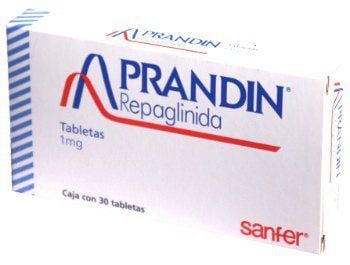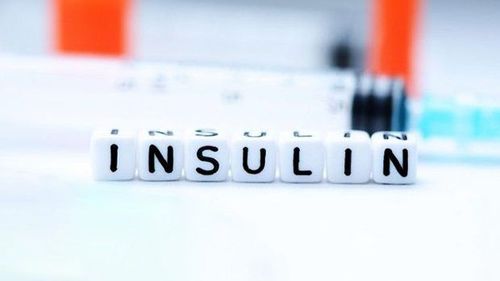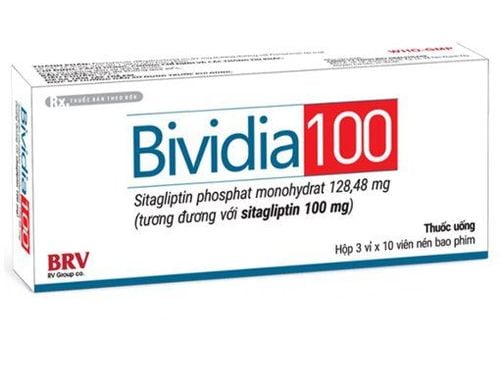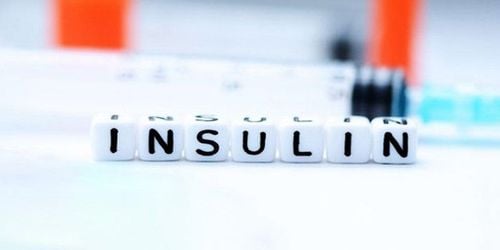This is an automatically translated article.
Hyperinsulinemia is defined as abnormally high blood insulin. This is a condition associated with type 2 diabetes but can also be a factor in insulin resistance, obesity, and metabolic syndrome. While it can be difficult to tell when insulin is high because the symptoms are often not obvious, the condition can still be diagnosed through blood tests when checking for other conditions, such as diabetes.1. What is hyperinsulinemia?
When a person has hyperinsulinemia, the amount of insulin in the blood will tend to be higher than normal.The pancreas makes insulin, a hormone that helps regulate blood sugar by allowing cells to use and absorb sugar, or glucose, from the blood. In other words, the body's cells use glucose for energy to carry out their normal functions.
So the body always needs insulin to keep blood sugar at a healthy level. When functioning properly, the pancreas makes enough insulin to regulate blood glucose levels. Normally, insulin is elevated in the blood because the pancreas increases production after a meal, especially if the meal is high in sugar or simple carbohydrates.
In contrast, insulin resistance is the main pathological cause of hyperinsulinemia. This condition occurs when the body's cells do not use insulin effectively. This resistance leads to higher blood glucose levels. Due to elevated blood sugar levels, the pancreas produces more insulin to keep up with the processing of blood sugar. Therefore, the concept of hyperinsulinemia is different from hyperglycemia, but often goes together.
2. Causes of hyperinsulinemia
The amount of insulin secreted for metabolism in the body will depend on race, sex, age, diet and activity level, as well as environmental factors. All of this may also be related to the body's insulin sensitivity. Therefore, the cause of hyperinsulinemia will be difficult to determine.Furthermore, hyperinsulinemia can also occur as a side effect of Roux-en-Y gastrectomy, possibly due to altered nutrient transport due to the newly created gastric sac. out and the digestive tract is shortened. However, the researchers found this effect was reversible with initial gastric bypass.
In rare cases, hyperinsulinemia can be caused by tumors of the beta cells of the pancreas or by overgrowth of beta cells.
3. Symptoms of hyperinsulinemia
Excess insulin secretion can lead to lower-than-normal blood sugar levels, resulting in hypoglycemia. This symptom will be easily noticed in infants born to mothers with uncontrolled diabetes.Meanwhile, most common hyperinsulinemia causes no symptoms.
However, in rare cases, the person will show symptoms of hypoglycemia which may include:
Increased cravings for sugar and carbohydrates. Tired. Difficulty losing weight. Frequent feeling of hunger or extreme hunger.
4. Complications of hyperinsulinemia
In fact, hyperinsulinemia is considered an early sign of greater metabolic dysfunction and is associated with the following complications:Cardiovascular disease. Type 2 diabetes. Alzheimer's disease. Paraneoplastic syndrome, with insulin-like growth factor 1 (IGF-1) stimulation. In pregnant women with uncontrolled blood sugar, the fetus is exposed to high levels of sugar. As a result, the fetus's pancreas has to produce more insulin. After birth, the baby will continue to secrete excess insulin or hyperinsulinemia and will experience a sudden drop in blood sugar due to not being able to feed in time. At this point, the baby needs to be treated with glucose replacement after birth, and insulin levels will usually return to normal within two days.
5. How to treat hyperinsulinemia?
Treatment for hyperinsulinemia will depend on identifying the root cause first. Treatment options mainly include medication and lifestyle changes similar to those for type 2 diabetes.5.1. Diet and nutrition
Eating healthy, especially a lower-carbohydrate diet, can be particularly helpful in improving insulin sensitivity, lowering blood sugar levels, and keeping body weight stable.Three diets that have been well researched for their benefits in blood sugar control and hyperinsulinemia :
Mediterranean diet : Eat lots of lean protein, limit red meat, consume lots of vegetables and fruits. fiber from whole grains and fats from plants, like olive oil. Low-fat diet: Focus on keeping fat low (about 20% to 35% of total calories), carbs relatively high (about 45% to 65% of total calories) and protein moderate (10% of total calories) up to 35% of total calories). Low-carb diets: Focus on keeping carbs very low (10% to 40% of total calories), while increasing fat but keeping protein in moderation. Regardless of what diet is chosen or ultimately how a balance of carbs/protein/fat is applied, the patient should eat raw foods. Eat plenty of vegetables, fruits, lean proteins, whole grains, and high-fiber carbs, and limit processed foods and foods with added sugar or artificial sweeteners. In addition, a diet very high in protein can also increase insulin, so excess protein should be avoided.
5.2. Do exercise
Since exercise has been shown to improve insulin resistance, engaging in a regimen of physical activity may be as helpful as treating hyperinsulinemia. Exercise can also help reduce obesity and maintain an ideal weight.Movements that may be effective in improving insulin sensitivity:
Endurance exercise: This combines weight lifting or exercises that use body weight to work one muscle group at a time. Endurance training can increase muscle mass, which can help with glucose absorption and reduce insulin dependence. Aerobic exercise: This type of exercise tones the cardiovascular system and works multiple muscle groups at once, for example brisk walking, full-body walking, jogging, swimming, biking or dancing dance. Aerobic exercise can be similarly helpful in increasing glucose absorption and decreasing insulin. High-intensity interval training: This type of exercise combines short bursts of vigorous activity followed by periods of lower intensity to help build endurance and speed recovery.
5.3. Use medicine
When the above lifestyle changes do not provide adequate results, the addition of medication may be considered.Medicines used to treat hyperinsulinemia are generally the same as those used to treat type 2 diabetes. Some diabetes medications enhance the action of insulin at the same time. lowers blood sugar. Metformin is one of the drugs that does this successfully.
In addition to Metformin, other classes of drugs approved as an adjunct to diet and exercise to improve glycemic control in people with diabetes include: Sulfonylureas, Thiazolidinediones, DPP inhibitors -4, SGLT2 inhibitor, GLP-1 RA, and long-acting basal insulin during the day. At this time, it is necessary to consult with your doctor about the right diabetes medications for you, which can both reduce sugar levels, reduce the amount of insulin needed or at least not raise blood insulin as a treatment. number of drugs still do.
In summary, hyperinsulinemia can be well managed and controlled with both medication and lifestyle changes. However, some studies have shown a link between hyperinsulinemia, type 2 diabetes, and obesity. It is necessary to actively protect health with regular check-ups as a way to prevent diseases and serious complications in the future.
Reference source: verywellhealth.com; healthline.com; diabetes.co.uk; medicalnewstoday.com.
Please dial HOTLINE for more information or register for an appointment HERE. Download MyVinmec app to make appointments faster and to manage your bookings easily.













